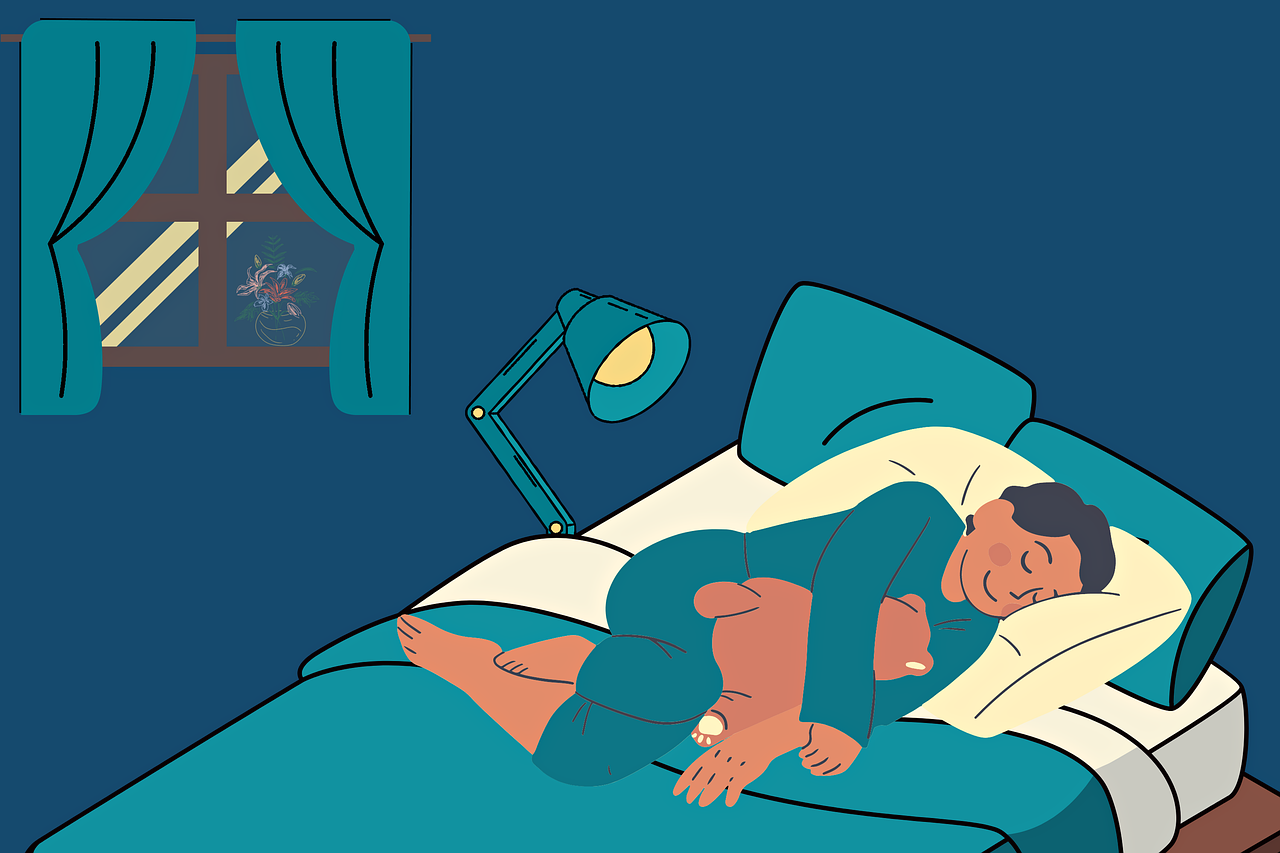Sleep is a natural, recurring state of rest characterized by reduced consciousness, decreased sensory activity, and inhibition of voluntary muscles. It plays an important role in both physical and mental health.
Key Aspects of Sleep
- Stages: Sleep is divided into several stages, including:
- NREM (Non-Rapid Eye Movement) Sleep: Consists of three stages, ranging from light to deep sleep, where the body undergoes repair and growth.
- REM (Rapid Eye Movement) Sleep: Associated with vivid dreaming, this stage is crucial for cognitive functions like memory and emotional processing.
- Circadian Rhythm: Sleep is regulated by the body’s internal clock, known as the circadian rhythm, which responds to environmental cues like light and darkness.
- Functions:
- Restoration: Sleep helps the body recover and rejuvenate.
- Memory Processing: It aids in consolidating memories and learning.
- Emotional Regulation: Sleep supports mental health and emotional stability.
- Duration: The recommended amount of sleep varies by age, but most adults need around 7-9 hours per night for optimal functioning.
Sleep is crucial for several reasons
- Physical Health: Quality sleep supports the immune system, helps regulate hormones, and lowers the risk of chronic diseases like heart disease, diabetes, and obesity.
- Mental Well-being: Adequate sleep is essential for emotional regulation, reducing stress, anxiety, and the risk of depression.
- Cognitive Function: Sleep enhances memory consolidation, learning, problem-solving skills, and creativity. It helps you think more clearly and make better decisions.
- Energy and Performance: A good night’s sleep boosts energy levels, improving performance in physical activities and daily tasks.
- Hormonal Balance: Sleep regulates hormones related to appetite, stress, and growth, contributing to overall metabolic health.
- Cell Repair and Growth: During sleep, the body repairs tissues, builds muscle, and releases growth hormones, promoting recovery and regeneration.
- Safety: Adequate sleep reduces the risk of accidents caused by drowsiness or impaired reaction times.
Prioritizing sleep can significantly enhance your quality of life and overall well-being!
Sleeping early offers several benefits
- Improved Sleep Quality: Early sleep often aligns with the body’s natural circadian rhythm, leading to deeper and more restorative sleep.
- Better Mental Health: Consistent early sleep can reduce stress and anxiety, contributing to overall emotional well-being.
- Enhanced Productivity: Waking up earlier can provide quiet, uninterrupted time for tasks, leading to increased focus and productivity throughout the day.
- Physical Health Benefits: Sufficient sleep supports immune function, reduces the risk of chronic illnesses, and helps maintain a healthy weight.
- Mood Regulation: Adequate sleep can stabilize mood and improve resilience to daily stressors.
- Cognitive Function: Quality sleep enhances memory, creativity, and problem-solving abilities.
- Time for Morning Routine: Early risers often have more time for self-care, exercise, or enjoying a relaxed breakfast, setting a positive tone for the day.
Establishing a consistent sleep schedule can make a significant difference in your overall health and daily performance!
Here are some effective tips to improve your sleep quality
- Establish a Sleep Schedule: Try to go to bed and wake up at the same time every day, including weekends, to help regulate your body’s internal clock.
- Create a Relaxing Bedtime Routine: Engage in relaxing activities before bedtime, like reading, taking a warm bath, or practicing meditation.
- Limit Screen Time: Limit screen time (phones, computers, TVs) for at least an hour before bedtime, as blue light can disrupt melatonin production.
- Optimize Your Sleep Environment: Keep your bedroom cool, dark, and quiet. Think about using blackout curtains and white noise machines if needed.
- Be Mindful of What You Eat and Drink: Avoid heavy meals, caffeine, and alcohol close to bedtime, as they can disrupt sleep.
- Get Regular Exercise: Physical activity during the day can promote better sleep, but try to avoid vigorous exercise close to bedtime.
- Manage Stress: Practice stress-relief techniques such as deep breathing, yoga, or journaling to calm your mind before sleep.
- Limit Naps: If you need to nap, keep it brief (20-30 minutes) and try to avoid napping late in the day.
- Consider Sleep Position: Find a comfortable sleep position and use supportive pillows to help maintain good alignment.
- Seek Professional Help if Needed: If you consistently struggle with sleep despite making these changes, consider consulting a healthcare professional for further evaluation.
Implementing these tips can lead to better sleep and improved overall well-being! Stay Happy!! Stay Healthy!!



